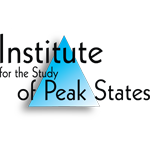Our TBI (Traumatic Brain Injury) Process
03/20/2018
This is the story of how we discovered an entirely new way to quickly and effectively eliminate traumatic brain injury (TBI) symptoms. It's also a story about how breakthrough research really happens. Read More…
Developing treatments for smoking and other addictions
10/12/2016
Today I'm going to talk about some of the ups and downs (and surprises!) that we encountered over the 15 year span we spent working on addictions. [If you would like to get help for this problem, you can contact certified Peak States therapist in various countries around the world. And as in all their work, treatment is done on a 'pay for results' basis.] Read More…
What are the 'medical' applications
05/13/2016
As the research director, I've sometimes been asked why our techniques are all about mental disorders and problems, instead of something more practical or useful like treatments for normal, 'real' diseases. Wouldn't it have made more sense to just do disease research and skip the psychology part? Wouldn't that have done a far better job of proving the model, with measurable results instead of all that wishy-washy emotional stuff? Read More…
Snake oil, or the real deal?
05/06/2016
When I give talks about subcellular psychobiology, I usually start with a survey of state of the art in my field, and follow up with the new breakthroughs that the Institute has discovered. But reasonably enough, I'm sometimes asked "where's the proof?" (To make this blog more interesting to you, just take a moment and think about this issue yourself - what objections immediately spring to your mind about all of this?) Read More…
Subcellular psychobiology is a 'disruptive technology'
05/04/2016
Historically, as a 'disruptive technology' is being developed, it starts small, usually solving problems that you can already do with existing techniques, albeit in a different way. (A familiar example is the iPhone that started an entire industry.) Over time the new technology advances, until it both replaces existing, more expensive or costly techniques, and also provides critically important functions that existing techniques simply cannot do at any cost. Even in the beginning, it usually has a few unique applications that existing techniques cannot accomplish. Over time, more and more of these unique applications occur. Read More…
Epigenetics, psychoneuroimmunology, and subcellular psychobiology
05/03/2016
If you are involved in the health field, you can quickly become overloaded by all the choices and techniques out there, be you a layperson, therapist, biologist, or physician. Every year there is more information, new diets, drugs, techniques, better technologies - the list is endless. Yet these approaches are not fundamentally new, but are rather incremental advances or combinations of existing ideas, concepts, and technologies. Only rarely over the course of a lifetime does a new idea or way of doing things fundamentally change our lives, or how problems are understood and solved. When something like this comes along, we call it a 'disruptive technology' (like the iPhone) or a 'paradigm shift' (like the idea that the earth goes around the sun) - they redefine how people work, live, or solve problems. Read More…
Going public with subcellular psychobiology
11/05/2014
This month, we’re publishing our ‘Subcellular Psychobiology Diagnosis Handbook’, a desk reference for our certified therapists - and we thought you might be interested in the very unusual ‘backstory’ about it. This book represents a major change in policy for us, as it includes material we have kept out of public view up until now. Oh, and by the way, this story is about our research ups and downs, not about the therapy you get from Institute certified therapists. So you might want to settle back and relax, as this is going to take a while… Read More…
Chronic Fatigue Syndrome: solving the biology
06/15/2014
The story of our treatment for CFS is a good example of how exploring the new field of subcellular psychobiology and developmental trauma can depends on luck, people, and circumstances. CFS was never on our list of research projects, yet now we treat it at our clinics. So how in the heck did this happen? Read More…
The Inner Peace Process™: demonstrating theory
04/05/2014
Today, I’d like to write about the surprising difficulties of bringing new approaches and techniques to the field of professional psychology, and I’ll use our technique for treating suicidal feelings and actions as an example. Read More…
Suicide Prevention: introducing new treatments
04/03/2014
Today, I’d like to write about the surprising difficulties of bringing new approaches and techniques to the field of professional psychology, and I’ll use our technique for treating suicidal feelings and actions as an example. Read More…
Small peak states conferences?
01/31/2014
One of the things I (Grant) had always hoped to see were small conferences of cutting-edge technique developers from the various approaches in the field of human potential, or as we call it, peak states of consciousness. Read More…
Welcome!
01/01/2014
This blog, although just starting, is written by certified PeakStates therapists with posts that they think will be of interest to you; whether you are interested in healing, peak states, or simply the work that they are doing. Read More…

